-
 +1 +1
+1 +1Beyond the Noise #42: Oops: Leaked Trump-RFK Jr. video
-
 +2 +1
+2 +1This Disease is Deadlier Than The Plague
-
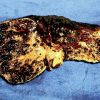 +29 +10
+29 +10A Family Ate 1 Year Old Frozen Leftovers For Breakfast. This Is What Happened To Their Organs.
-
 +1 +1
+1 +1TWiV 1130: Clinical update with Dr. Daniel Griffin
Good info on long covid,among other topics.
-
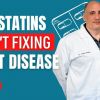 +3 +1
+3 +1What They Don't Tell You About Statins
-
 +2 +1
+2 +1Anesthesia in Tattooing
As the use of anesthesia in tattooing gains popularity, curiosity surrounds its ‘aftermath.’ What happens to the canvas after they’ve been ‘asleep’ for the entirety of an extremely traumatic tattoo session, and what challenges do they face after coming-to and being left to heal?
-
 +2 +1
+2 +1How to Treat Dry Eyes Like an Ophthalmologist
-
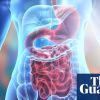 +24 +5
+24 +5Bowel disease breakthrough as researchers make ‘holy grail’ discovery
Scientists pinpoint driver of IBD and other disorders with work under way to adapt existing drugs to treat patients
-
 +21 +4
+21 +4'Sham' Surgery Can Actually Fix Our Bodies. So Why Are Some Against It?
All the patients were monitored for two years to see how many stairs they could climb before their pain got in the way. The results were clear: the sham procedure was as good for pain and function. Also, because the sham surgery is less invasive, it is less harmful. For example, there is a lower risk of infection.
-
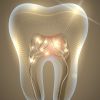 +21 +2
+21 +2World-first tooth-regrowing drug will be given to humans in September
The world's first human trial of a drug that can regenerate teeth will begin in a few months, less than a year on from news of its success in animals. This paves the way for the medicine to be commercially available as early as 2030.
-
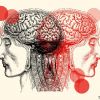 +34 +4
+34 +4Many mental-health conditions have bodily triggers
Psychiatrists are at long last starting to connect the dots
-
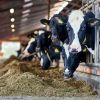 +35 +3
+35 +3How the US is preparing for a potential bird flu pandemic
As the US grapples with an ongoing bird flu outbreak in dairy cattle, the country’s health agencies are ramping up surveillance efforts and working to develop a vaccine if needed
-
 +26 +7
+26 +7Infections after surgery are more likely due to bacteria already on your skin than from microbes in the hospital − new research
Most infection prevention guidelines center on the hospital environment rather than the patient. But the source of antibiotic-resistant microbes is often from the patient’s own body.
-
 +29 +3
+29 +3Do we need a new Diabetes Association? [ADA Corrupt?] - 2024
-
 +10 +1
+10 +1Accelerated aging linked to cancer risk in younger adults, research shows
Researchers looking for clues to why some types of cancer are on the rise in younger adults say they’ve found an interesting lead — a connection to accelerated biological aging.
-
 +29 +5
+29 +5Dr. Paul Mason - 'The Clotting Theory of Atherosclerosis and Seed Oil Toxicity (updated)'
-
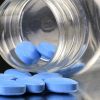 +29 +5
+29 +5Huge Study Confirms Viagra Cuts Alzheimer's Risk by Over 50%
An FDA-approved pharmaceutical used to treat erectile dysfunction could soon be recommended as a therapy for decreasing the risk of Alzheimer's disease.
-
 +30 +2
+30 +2Landmark Study Confirms Chronic Fatigue Syndrome Is 'Unambiguously Biological'
In 2016, years before long COVID was a thing, the US National Institutes of Health, the largest single public funder of medical research in the world, launched a study into a long-neglected and puzzling condition: chronic fatigue syndrome (CFS), also...
-
 +28 +4
+28 +4The Uncomfortable Truth Of What Really Happened With COVID | Dr. Paul Offit
-
 +24 +4
+24 +4WHY YOUR DOCTOR LIES TO YOU - with DR ROBERT LUFKIN
Submit a link
Start a discussion




















